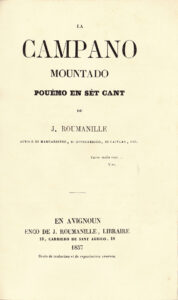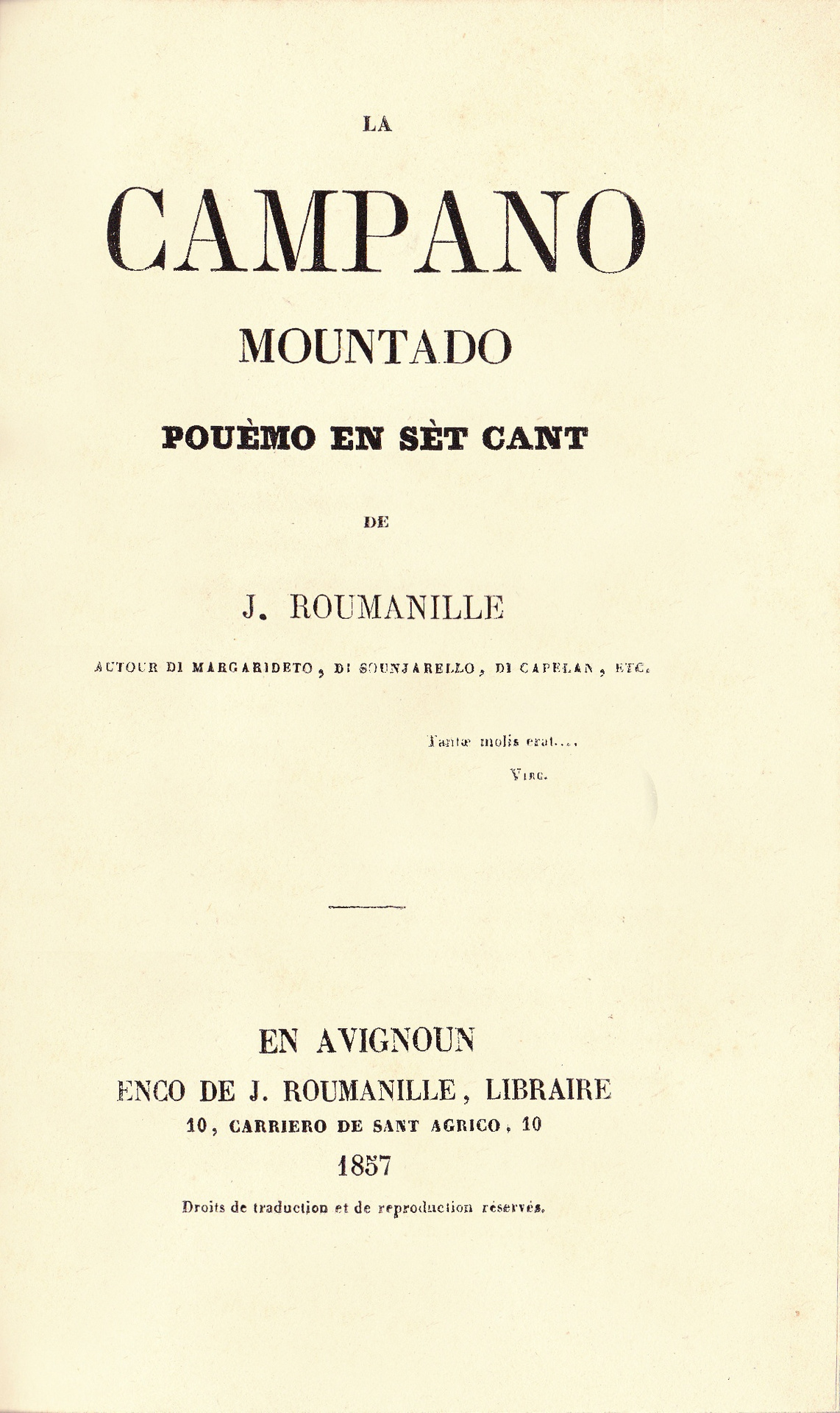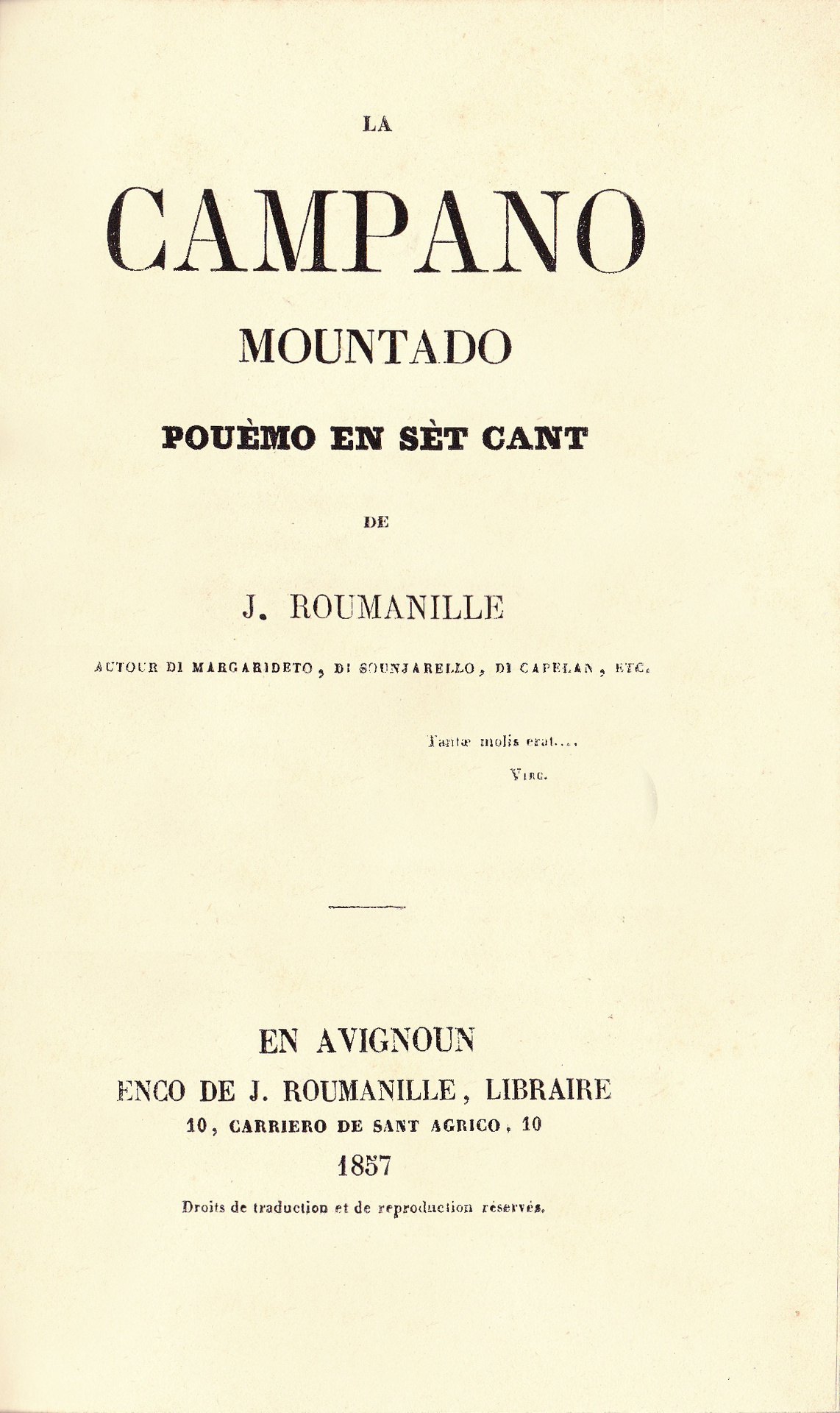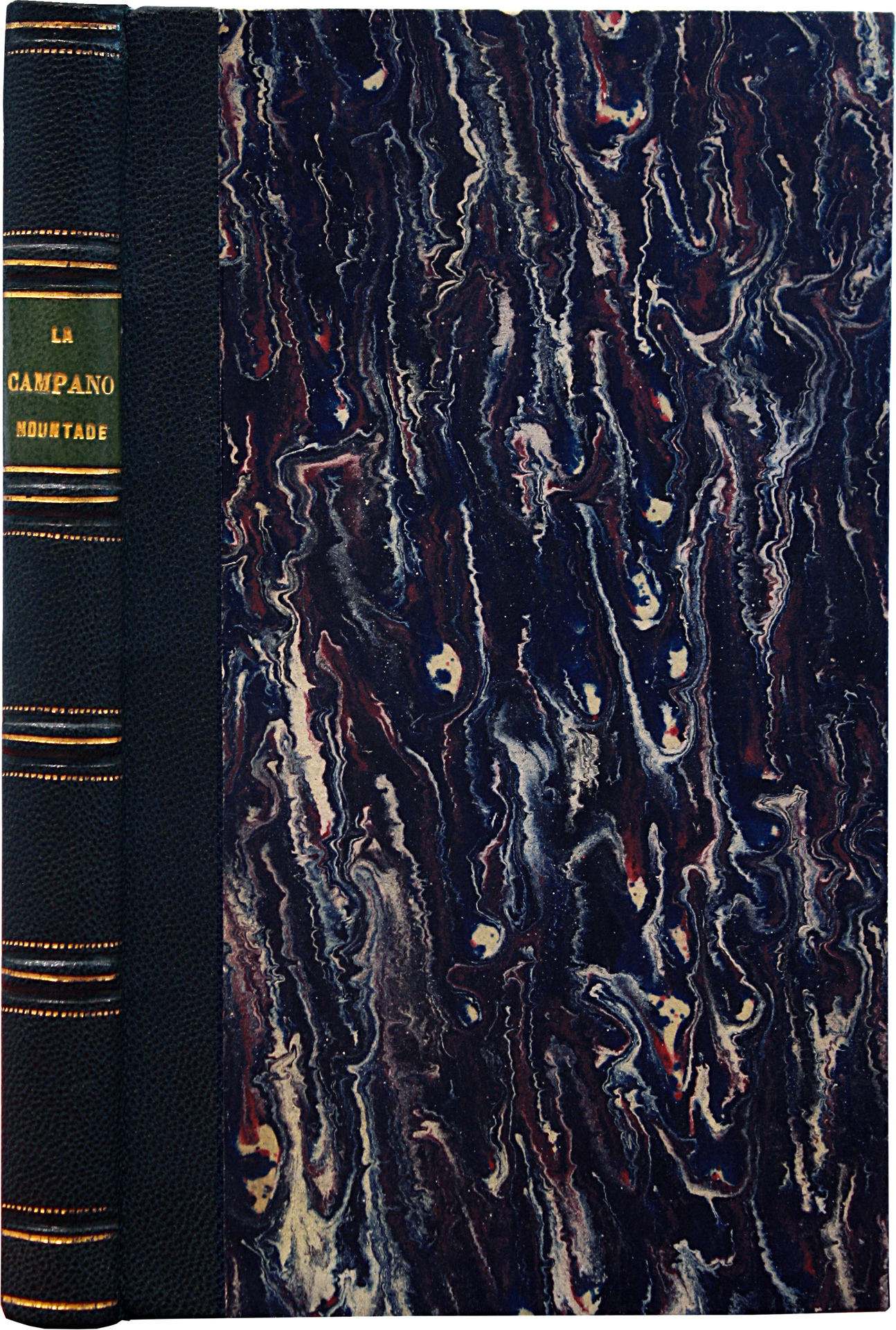En Avignoun, Enco de J. Roumanille, Libraire, 1857.
12mo [172 x 106 mm] of ix pp., (3) pp., 144 pp. Bound in night blue half-shagreen, ribbed spine decorated with gilt fillets, green morocco lettering piece, mottled edges. Contemporary binding.
First edition of this collection of poems in Provencal, published little after the crêtion of the Félibrige in 1854.
C.-P. Julian and P. Fontan, Anthologie du Félibrige provençal, p. 12.
Campano mountado (The Mounted Bell, 1857) is a hero-comical poem composed of 7 chants “in the manner” of the Lectern namely: Sabòly, Lou Journau, Lou Diable, Moussu lou Curat, Vitòri, L’aigo-signado, La man que dardaio.
“The Mounted Bell is the very plêsant and very poetic story by moments, of a certain bell-ringer of the Saint-Didier church of Avignon, a brave man passionate about his bells and who spends his life collecting money, penny by penny, from door to door, in order to enrich the chimes of his church with new notes. One can guess the sharp opportunities that such a setting offered to the painter of Avignon customs. This time Mr. Roumanille has relêsed the bridle to his comic fantasy; be sure however that his lofty thoughts always seem appropriate in the midst of the most vivid buffoonery. This is, I am well aware, a completely local picture; the hero of the poem still lives and everyone can meet him on the street: why does this matter? This joyful madness of Mr. Roumanille does not detract from the kind gravity of his works.” (Saint-René Taillandier. The Renaissance of Provencal life, p. 251).
Joseph Roumanille, born in Saint-Remy-de-Provence in 1818 and died in Avignon in 1891, is a French poet writing in Provençal.
“He was the elder of seven children in a wêlthy family of pêsants, with a Catholic background where one piously preserved the regional traditions and the use of the Provencal language. The young Joseph studied at the Tarascon College, and was then master of studies at Nyons, in the Drôme, then in Avignon where he had among his pupils Frederic Mistral and Anselme Mathieu. Attracted êrly by the language of his province, he published a first collection of verses in Provençal: ‘Les Pâquerettes’ in 1847. After the Revolution of 1848 he took part in the Legitimist journal of Avignon ‘La Commune’, in which he published dialogued pamphlets in which a remarkable talent of prose writer and polemicist emerged; most of these writings are reunited in in ‘Lis Oubreto’ (1860). Furthermore, Roumanille solicited the collaboration of young Provencal poets of that time, which he hosts and analyzes the productions in the columns of his paper: he reunited all these works in a volume in 1852 under the title ‘The Provençal’ (Li Prouvençalo’). Henceforth, Roumanille becomes a school lêder: he establishes, with the consent of Mistral, the principles of the new spelling of the Provençal, that he states in the preface of ‘God’s share’ (1852), and he participated in the foundation of the Félibrige the 21 May 1854 in Font-Ségugne, nêr Avignon, alongside Mistral, Aubanel, A. Mathieu, Giera, Brunet and Tavan. He was the elder of the 7; he had prepared the movement with his work and personal action; that is why he deserves to be called the ‘Father of Félibrige’.”
(Dictionnaire des auteurs, IV, 143).
In 1855, Joseph Roumanille became bookseller-editor in Avignon. His bookshop, in Saint-Agricol street, becomes a tool of the Felibrian cause. Numerous other works will be published by this publishing house that became the home of the Provençal Renaissance, such as “Mirèio” by Mistral and “Armana Prouvencau”.
Precious copy of this rare collection of Provençal poems, preserved in its elegant contemporary binding in night blue half-shagreen.




